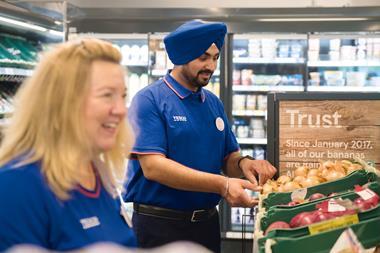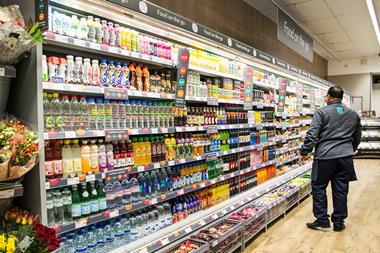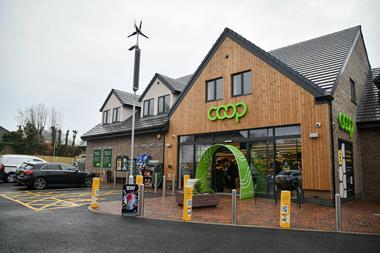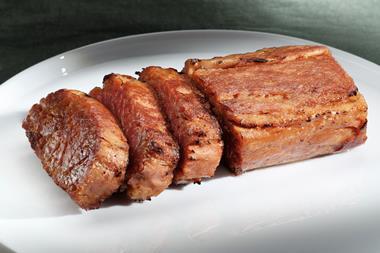
One story widely reported across the nationals is the government’s plan to extend the sugar tax to milkshakes and other milk-based drinks. Chancellor Rachel Reeves announced in her autumn budget last year that the government was considering widening the levy, said the BBC. The Treasury also confirmed this week proposals to reduce the maximum amount of sugar allowed in drinks before they become subject to the levy from 5g to 4g per 100ml.
The Guardian added that the consultation, which was put out on Monday, could also extend the tax to non-dairy substitutes such as oats and rice.
Marks & Spencer cyber security woes continues to dominate headlines. The Guardian has reported that the retailer has been forced to pause deliveries of some packaged food items to Ocado due to the issue. M&S has not confirmed the number of items affected but said it was working “to minimise any disruption to the small proportion of the range delivered through our network to Ocado”.
Elsewhere, it has been revealed that the retailer knew of cyber security risks last year. The Times has reported that M&S’ most recent annual report, published in June, said that the shift to hybrid working, brought on by the pandemic, had made it more vulnerable to cyberattacks. Other listed retailers have also included cyber and data security as a principle risk to their business in their annual reports.
Supermarkets are turning down graduates as the number of job vacancies declines, the BBC reports. The government says getting more young people into work is a priority but UK job vacancies are at their lowest level in nearly four years. The British Retail Consortium has said young people will be hit hardest as firms cut back on hiring because of rising employer costs and forthcoming changes to workers’ rights.
UK food inflation has hit an 11-month high as staples such as bread, meat and fish become more expensive at a time of higher costs for retailers (Financial Times). Food prices rose at an annual rate of 2.6 per cent in April, up from 2.4 per cent in March and the fastest pace since May last year, according to the BRC. It warned that the “days of shop price deflation look numbered”.
This has also been reported in The Grocer which adds that fresh food inflation increased to 1.8% in April, compared with 1.4% in March and a three-month average of 1.5%. Ambient food inflation was 3.7% in April, unchanged since March but above the three-month average of 3.4%. Overall shop prices remained in deflation, but only just, at –0.1%. It’s a change from both the March figure and the three-month average of –0.4%.
ChatGPT has added shopping features to its powers, extending the reach of artificial intelligence. It said the update would allow users to see prices and reviews more easily, as well as find direct links to purchase personalised product recommendations. Parent company OpenAI said its selections would be “chosen independently and are not ads”. (BBC)
The Financial Times has also done a feature on how Trump tariffs are compounding Scotch sellers’ troubles due to “amplified levels of uncertainty”. It has triggered a wave of financing activity, from equity raises to outright sales, in a sector that accounts for about one-quarter of Scotland’s goods exports, the FT said. In 2024, the value of Scotch whisky exports fell 3.7 per cent from 2023 to £5.4bn, while the volume increased by 3.9 per cent to 1.4bn bottles, according to the Scotch Whisky Association.
Meanwhile, on the Isle of Wight there are new hopes that oranges, lemons and mandarins could be grown thanks to rising temperatures. Gardeners at Ventnor Botanic Garden on the Isle of Wight have planted 30 varieties of citrus plants, taking advantage of its southerly location, protected from cold northerly winds by the steep chalk hills above. While the gardens are primed for growing citrus fruit, with temperatures that are 5C higher on average than the rest of the country, staff believe that changing weather will lead to wider citrus boom. (The Times)



















No comments yet